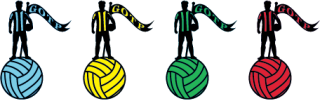PORTUGAL’s big football clubs have long been admired for their ability to identify, nurture and market young footballers. This process has been an important part of the business models of Sporting, Benfica and Porto for some years, and has made them all successful player traders.
According to Football Benchmark, the Portuguese trio are among only seven clubs to post a positive outcome from their playing trading activities between 2020-21 and 2022-23. They occupy three of the first four places, with Ajax taking third spot. Football Benchmark’s study, The European Elite, looks at the top 32 clubs in Europe.
Sporting, Portugal’s champions in 2023-24, had a positive player trading balance of € 70 million in the three years under review. In 2022-23, they yielded over € 100 million from the sales of Nuno Mendes (PSG), João Palhinha (Fulham) and Matheus Nunes (Wolves), while in 2023-24, they earned a further € 100 million from the transfers of Pedro Porro (Tottenham) and Manual Ugarte (PSG).
Sporting, of course, was the club that brought Cristiano Ronaldo and Luis Figo to the football world. More recently, Bruno Fernandes moved from Sporting to Manchester United for an initial fee of € 55 million.
Sporting and their rivals have been smart enough to realise that Portugal has its place in the football eco-system. They have also shown how intelligent strategies around player acquisition and disposal can benefit clubs outside the elite and then earn significant sums of money from their transfers. Portugal’s leading clubs have been successful in forming partnerships with international companies from the gambling sector, which have been useful in raising the global profile of the clubs.
Portuguese clubs have become the main destination for Brazilians – in 2023, there were well over 200 in Portugal. No other country comes close when it comes to importing Brazil’s football products. In fact, the most travelled trade route in world football is Brazil to Portugal. Sporting, Benfica and Porto are also leading providers of talent to the Premier League and La liga. Unsurprisingly, these clubs have the most players trained through their system (an average of 23%). Their squads are all around 60% foreign with 25% of the overall total from South America. As well as Brazil, Portuguese clubs also seek out prospects in Argentina, Colombia and Uruguay.
Benfica identified an opportunity some years ago and have provided a long stream of players to Europe’s top clubs. They had a positive balance of € 51 million, boosted by the sale of Darwin Núñez to Liverpool for € 75 million and Enzo Fernandez to Chelsea for € 121 million. But it was Porto who were closest to Sporting with a balance of € 66 million, thanks to sales of Fábio Silva (Wolves, € 40 million), Luis Díaz (Liverpool, € 45 million) and Vitinha (PSG, € 41.5 million), among others.
Experts call the Portuguese clubs “factories”, but this devalues their contribution a little. Sporting (average crowd 40,102), Benfica (56,248) and Porto (37,911) are all well supported, but they are big fish in what is a relatively small pond. The average crowd for the Primeira Liga in 2023-24 was 12,119 which was the highest since 1990, but still small for a major league. As a result, they are all net sellers in the transfer market – to overseas clubs. Between the three of them, their net transfer income between 2019-20 to 2023-24 totalled € 725 million. It is an important revenue stream for all three; for Sporting, it contributed 20% of total earnings between 2020-21 and 2022-23, for Benfica and Porto it generated 15%. The strategy of player trading has enabled them to assume greater relevance in the modern game while giving them a sustainable structure. Clubs that are net buyers have, generally, fail to post a positive result from player trading.
As well as money, youth development has also provided these clubs with first-team players. Benfica and Sporting have been particularly successful, with the most high profile graduates being João Felix and Gonçalo Ramos. Sporting’s successful team of 2023-24 included four– Daniel Bragança, Gonçalo Inácio, Ricardio Esgaio and Eduardo Quaresma, who came from Sporting’s youth set-up.
Could clubs from other countries adopt a similar model to carve-out a niche for themselves? South America is just one market, but Africa and Asia have the potential to produce footballers who could compete in Europe. Sporting, Benfica and Porto, not to mention Braga, have all established a network and processes that can bear rich fruit. It has proved to be the salvation for these clubs – it could be for others.

